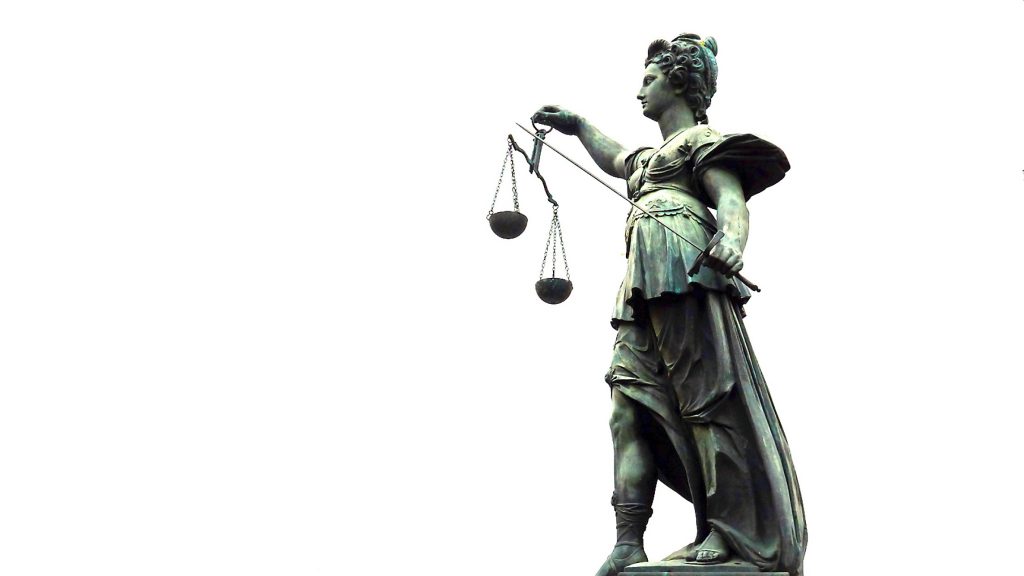Plaintiffs, Ubisoft Entertainment, S.A. and Ubisoft, Inc. (collectively, “Ubisoft”) are developers and publishers of the video game Rocksmith and own patent no. 9,839,852 (“the ‘852 patent”), which is entitled “interactive guitar game.” Ubisoft filed a complaint against the defendant, Yousician, a software provider for learning to play musical instruments, for direct, induced, and contributory infringement in violation of 35 U.S.C. § 271. Yousician moved to dismiss the complaint on the grounds that the patent is directed to an abstract idea that does not cover patentable subject matter under 35 U.S.C. § 101.
Ubisoft responded to the motion by asserting that the patent’s claims of “assessing a user’s performance for improvement and selectively changing the difficulty level of a song based on that performance, as claimed in the ‘852 patent, is an improvement on the prior art that utilizes computer programming to receive and assess audio signals from a guitar and selectively change the difficulty level to be played by the user and/or generate a different game targeted to improve the user’s skills based on the user’s performance.”
The district court first discussed the relevant standard under the Supreme Court’s Alice decision, which delineates a two-step process for “distinguishing patents that claim of nature, natural phenomena, and abstract ideas from those that claim patent-eligible applications of those concepts.” Alice Corp. Pty. Ltd., v. CLS Bank Int’l, 134 S. Ct. 2347, 2354-55. The first step requires the court to determine whether the patent claims at issue are directed toward an abstract idea. Id. If the court concludes the claims are directed to an abstract idea, it proceeds to the second step. Id. At the second step, the court determines whether the patent contains an “inventive concept”– that is, whether there exists “an element or combination of elements that is sufficient to ensure that the patent in practice amounts to significantly more than a patent upon the ineligible concept itself.” Id. (internal quotations omitted). Continue reading




 In evaluating the motion, the district court explained that a “noninfringing alternative need not be on the market during the infringement period to factor into a lost profits analysis.” Wechsler v. Macke Intern. Trade, Inc., 486 F.3d 1286, 1298 (Fed. Cir. 2007). But the district court also noted that where an alleged non-infringing alternative was not on the market during the relevant time period, “a trial court may reasonably infer that it was not available as a non-infringing substitute at that time. The accused infringer then has the burden to overcome this inference by showing that the substitute was available.” Grain Processing, 185 F.3d at 1353 (citation omitted). Moreover, “[t]he acceptable substitute element, though it is to be considered, must be viewed with limited influence where infringer knowingly made and sold the patented product for years while ignoring the substitute.” Panduit, 575 F.2d at 1162, n.9.
In evaluating the motion, the district court explained that a “noninfringing alternative need not be on the market during the infringement period to factor into a lost profits analysis.” Wechsler v. Macke Intern. Trade, Inc., 486 F.3d 1286, 1298 (Fed. Cir. 2007). But the district court also noted that where an alleged non-infringing alternative was not on the market during the relevant time period, “a trial court may reasonably infer that it was not available as a non-infringing substitute at that time. The accused infringer then has the burden to overcome this inference by showing that the substitute was available.” Grain Processing, 185 F.3d at 1353 (citation omitted). Moreover, “[t]he acceptable substitute element, though it is to be considered, must be viewed with limited influence where infringer knowingly made and sold the patented product for years while ignoring the substitute.” Panduit, 575 F.2d at 1162, n.9. In analyzing the motion, the district court explained that it had previously “determined that this case was frivolous and that plaintiff had litigated it in an unreasonable manner, rending the exceptional and entitling defendant to an award of attorneys’ fees. None of those underlying facts have changed, and plaintiff does not argue that they have.”
In analyzing the motion, the district court explained that it had previously “determined that this case was frivolous and that plaintiff had litigated it in an unreasonable manner, rending the exceptional and entitling defendant to an award of attorneys’ fees. None of those underlying facts have changed, and plaintiff does not argue that they have.”
 In this patent infringement action, the defendants, Synergistics, Inc. (“Synergistics”), filed a motion to dismiss the complaint for lack of personal jurisdiction. The plaintiff, Parabit Systems, Inc. (“Parabit”), opposed the motion on the ground that it was not required to establish personal jurisdiction in the complaint and that Synergistics had failed to come forward with any evidence that the district court did not have personal jurisdiction over it.
In this patent infringement action, the defendants, Synergistics, Inc. (“Synergistics”), filed a motion to dismiss the complaint for lack of personal jurisdiction. The plaintiff, Parabit Systems, Inc. (“Parabit”), opposed the motion on the ground that it was not required to establish personal jurisdiction in the complaint and that Synergistics had failed to come forward with any evidence that the district court did not have personal jurisdiction over it. sidestep its own knowledge—and when it gained such knowledge—about the existence and functionality of Defendants’ customized BRAIN shock for Specialized. Instead, FOX Factory seeks to direct the court’s attention to Defendants’ discovery shortcomings. But in considering good cause, this court first focuses on whether the original deadline could have been met with reasonable diligence by Plaintiffs, not any bad faith by Defendants. Colorado Visionary Academy, 194 F.R.D. at 687. Using this framework, based on the record before it, this court is not persuaded that FOX Factory exercised adequate diligence to warrant amendment of its Final Infringement Contentions at this late juncture.”
sidestep its own knowledge—and when it gained such knowledge—about the existence and functionality of Defendants’ customized BRAIN shock for Specialized. Instead, FOX Factory seeks to direct the court’s attention to Defendants’ discovery shortcomings. But in considering good cause, this court first focuses on whether the original deadline could have been met with reasonable diligence by Plaintiffs, not any bad faith by Defendants. Colorado Visionary Academy, 194 F.R.D. at 687. Using this framework, based on the record before it, this court is not persuaded that FOX Factory exercised adequate diligence to warrant amendment of its Final Infringement Contentions at this late juncture.” In this patent infringement action, the defendant moved to dismiss the plaintiff’s complaint for the plaintiff’s failure to participate in discovery and for ignoring several court orders. The motion explained that dismissal sanctions were appropriate in the light of, among other things, the plaintiff’s failure to comply with court orders, sanction order and to appear for a court hearing.
In this patent infringement action, the defendant moved to dismiss the plaintiff’s complaint for the plaintiff’s failure to participate in discovery and for ignoring several court orders. The motion explained that dismissal sanctions were appropriate in the light of, among other things, the plaintiff’s failure to comply with court orders, sanction order and to appear for a court hearing.